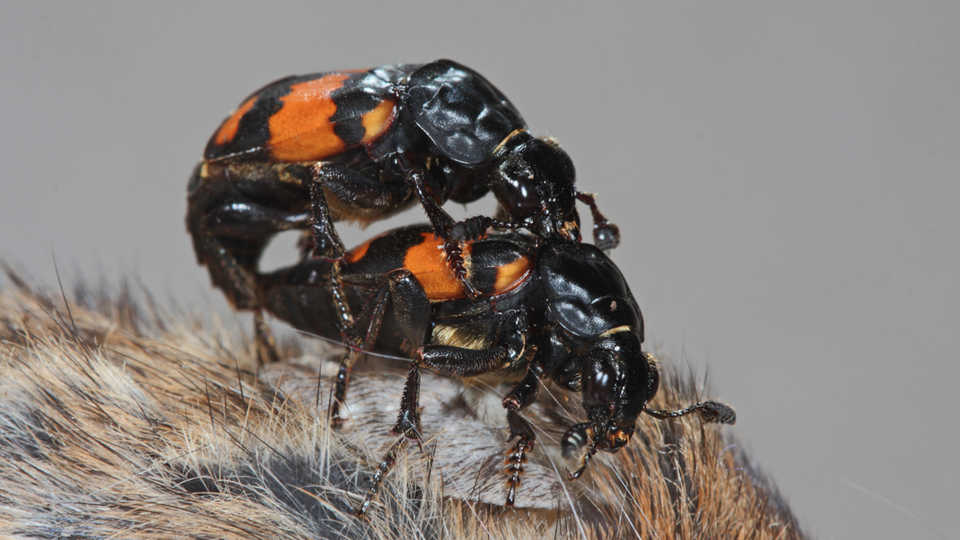Science News
Secret to Successful Parenting

Burying beetles from the genus Nicrophorus are pretty disgusting. But they are also hardworking and excellent parents. (Who says you can’t have it all?) A study, published this week in Nature Communications, describes their progressive co-parenting skills and how they make it all work.
Burying beetles are carnivores, finding and—true to their names—burying the carcasses of dead birds and rodents to use as food and nesting grounds for their offspring. This process is pretty cool—and gross. The insect uses chemical receptors on their antennae to find a potential home (i.e., dead animal). They then dig a deep hole to bury their find and protect it from other burying beetles. They skin the carcass and then cover it with an antibacterial secretion to make the carrion safe for food and home alike. And it’s all in a full day’s work—this process can take eight hours or more.
The work doesn’t stop there. When it comes to the birth of their young, burying beetles differ from their insect brethren—they actually care for and feed their larvae instead of laying eggs and abandoning them. And rarer still in the natural world, both partners share in this brood care.
Evolutionarily, there’s often a choice when it comes to reproduction: put all of your energy into raising your young or invest your time in mating as much as possible and hope that there’s some survival in the sheer numbers of young. Burying beetles seem to do both, and scientist Sandra Steiger and her colleagues wondered how the beetles can divvy up that energy (as any new parent might wearily ask).
Running experiments in the lab with burying beetles collected from a forest in Germany, the research team discovered that, like mammals, female beetles possess hormones that render the beetles temporarily infertile while their current offspring are most in need of parental care. The scientists’ subsequent finding was most surprising—the female lets the male know she’s infertile with a chemical signal, reducing his mating attempts. This abstinence on the male’s part allows him to use his energy instead to contribute towards rearing his young. This infertility and abstinence doesn’t last long; the larvae are nutritionally independent after four days. At this point the larvae continue to feed on the carrion on their own, and the parents focus their attention to a potential future brood.
Striking a successful balance as a parent seems to be easy for burying beetles!
Image: Heiko Bellmann